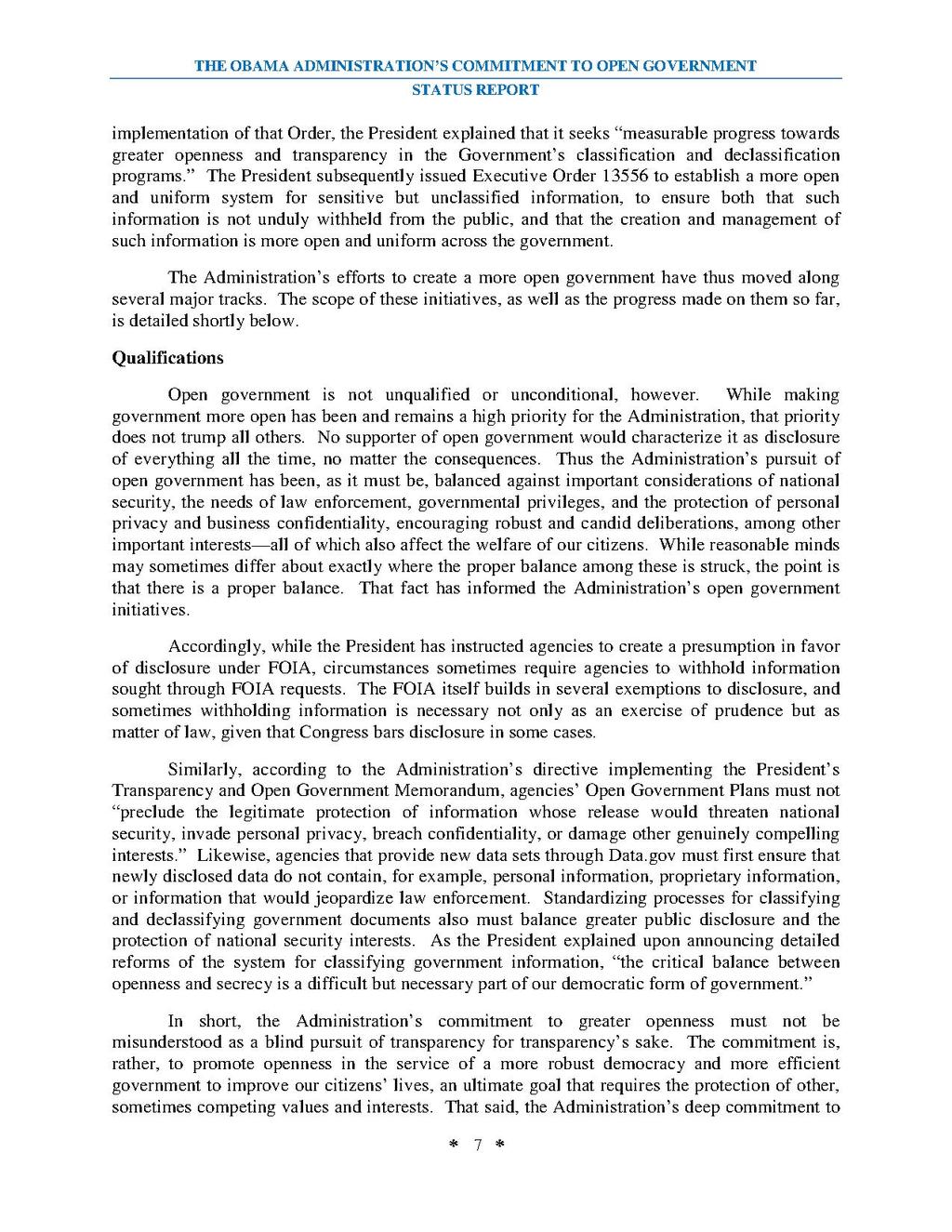STATUS REPORT
implementation of that Order, the President explained that it seeks "measurable progress towards greater openness and transparency in the Government's classification and declassification programs." The President subsequently issued Executive Order 13556 to establish a more open and uniform system for sensitive but unclassified information, to ensure both that such information is not unduly withheld from the public, and that the creation and management of such information is more open and uniform across the government.
The Administration's efforts to create a more open government have thus moved along several major tracks. The scope of these initiatives, as well as the progress made on them so far, is detailed shortly below.
Qualifications
Open government is not unqualified or unconditional, however. While making government more open has been and remains a high priority for the Administration, that priority does not trump all others. No supporter of open government would characterize it as disclosure of everything all the time, no matter the consequences. Thus the Administration's pursuit of open government has been, as it must be, balanced against important considerations of national security, the needs of law enforcement, governmental privileges, and the protection of personal privacy and business confidentiality, encouraging robust and candid deliberations, among other important interests—all of which also affect the welfare of our citizens. While reasonable minds may sometimes differ about exactly where the proper balance among these is struck, the point is that there is a proper balance. That fact has informed the Administration's open government initiatives.
Accordingly, while the President has instructed agencies to create a presumption in favor of disclosure under FOIA, circumstances sometimes require agencies to withhold information sought through FOIA requests. The FOIA itself builds in several exemptions to disclosure, and sometimes withholding information is necessary not only as an exercise of prudence but as matter of law, given that Congress bars disclosure in some cases.
Similarly, according to the Administration's directive implementing the President's Transparency and Open Government Memorandum, agencies' Open Government Plans must not "preclude the legitimate protection of information whose release would threaten national security, invade personal privacy, breach confidentiality, or damage other genuinely compelling interests." Likewise, agencies that provide new data sets through Data.gov must first ensure that newly disclosed data do not contain, for example, personal information, proprietary information, or information that would jeopardize law enforcement. Standardizing processes for classifying and declassifying government documents also must balance greater public disclosure and the protection of national security interests. As the President explained upon announcing detailed reforms of the system for classifying government information, "the critical balance between openness and secrecy is a difficult but necessary part of our democratic form of government."
In short, the Administration's commitment to greater openness must not be misunderstood as a blind pursuit of transparency for transparency's sake. The commitment is, rather, to promote openness in the service of a more robust democracy and more efficient government to improve our citizens' lives, an ultimate goal that requires the protection of other, sometimes competing values and interests. That said, the Administration's deep commitment to
7
